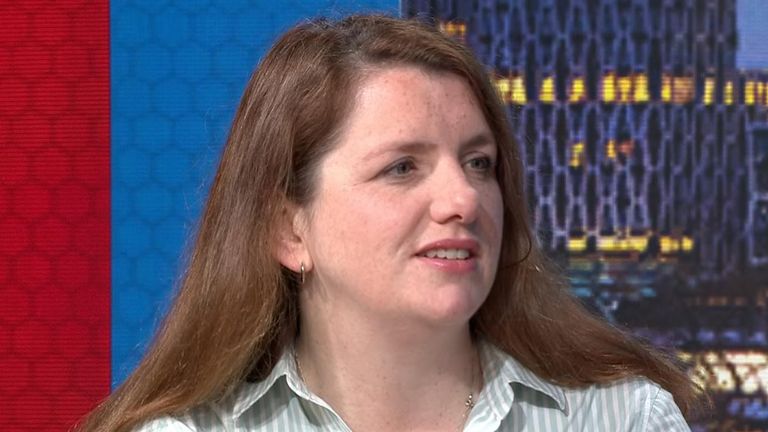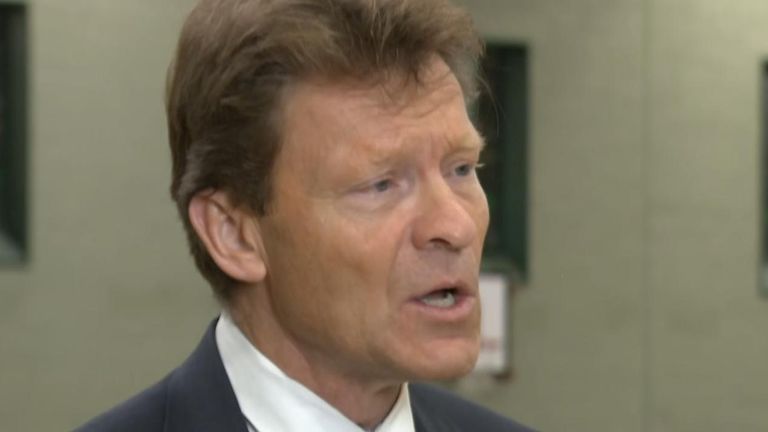Local elections 2024: Labour pulling off strong wins with ‘truly historic’ shock in Tory stronghold – as results show Brexit shift


Labour has won control of a string of Leave-voting councils as results begin to roll in from the local elections across England and Wales.
The party seized control of Rushmoor in Hampshire from the Conservatives shortly after 3am – a council the Tories had run for the last 24 years – with a spokesman calling the result “truly historic”.
Come 5am, they had also taken Redditch in the West Midlands, turning a Conservative majority of five into a Labour majority of 15.
Politics live:
Follow the results as they come in
Labour also took Hartlepool Council – the scene of a major by-election loss back in 2021, which led Sir Keir Starmer to consider quitting as leader – and Thurrock in Essex, from no overall control, saying it was “exactly the kind of place we need to be winning to gain a majority in a general election”.
And the party replaced the Tories as the largest party on Peterborough Council which, while remaining under no overall control, saw the Conservatives lose 13 of the 16 seats they were defending.
Meanwhile, the Conservatives lost control of North East Lincolnshire after Labour won five of the seats up for grabs – with neither party now holding a majority on the council.
All six areas overwhelmingly voted Leave in the 2016 Brexit referendum, with Thurrock supporting it by 72.3%, North East Lincolnshire by 69.9%, Hartlepool by 69.6%, Redditch by 62.3%, Peterborough by 60.9% and Rushmoor by 58.2%.
However, Labour lost seats in some of its more traditional areas where there is a high Muslim population, such as Newcastle, with critics putting the failures down to the party’s positioning on the conflict in Gaza.
Advertisement
Redditch – Labour gain from the Tories
Hartlepool – Labour gain from no overall control
Rushmoor – Labour grabbed from the Conservatives
Thurrock – a Labour gain from no overall control
North East Lincolnshire – lost by the Tories to no overall control
Harlow – the Tories managed to just about hang on against a challenge from Labour
In other important developments:
• Labour held on to Sunderland Council
• It also kept control of South Tyneside, Chorley and Newcastle
• The Greens won a number of seats from Labour in Newcastle
• Carla Denyer, Green co-leader, said Labour lost support over Gaza
• The Tories held on to other councils in Hertfordshire, Hampshire and Essex
More than 2,600 council seats across 107 councils were up for grabs in England, alongside 11 mayoral elections, a parliamentary seat and police and crime commissioners throughout England and Wales – with many of the results still coming in.
But early signs show Labour is winning back seats in areas it lost over the Brexit debate, as well as making gains in traditionally Tory voting councils.
Read more:
Labour gains new MP with Blackpool by-election win
Friday morning: From 7 am Anna Jones is presenting Breakfast joined by deputy political editor Sam Coates and election analyst Professor Michael Thrasher. She will interview the Conservative Party chairman Richard Holden, Labour’s Pat McFadden and Lee Anderson of Reform UK.
Friday: From 10am lead politics presenter Sophy Ridge and chief presenter Mark Austin will be joined by political editor Beth Rigby and Sam Coates throughout the day, as well as economics and data editor Ed Conway and Professor Michael Thrasher.
Friday night: From 7pm until 9pm, Sophy Ridge will host a special edition of the Politics Hub, offering a full analysis and breakdown of the local elections.
The weekend: Sophy Ridge will host another special edition of the Politics Hub on Saturday from 7pm until 9pm. And Sunday Morning with Trevor Phillips will take a look back over what’s happened from 8.30am until 10am.
How do I watch?: Freeview 233, Sky 501, Virgin 603, BT 313, YouTube and the Sky News website and app. You can also watch Sky News live here, and on YouTube.
And the Electoral Dysfunction podcast with Beth Rigby, Jess Phillips and Ruth Davidson will go out on Friday, and Politics at Jack and Sam’s will navigate the big question of where the results leave us ahead of a general election on Sunday.
We’ll also have the latest on the politics page of our website.
‘People crying out for change’ – Labour
Shadow environment secretary Steve Reed told Sky News that while it was “early days”, the results so far were showing positive signs for Labour come the next general election.
“These are not polls,” he said. “These are people getting off their backsides, going out of their homes, into a polling station, putting a cross on a party that they want to govern their local area.
“People are crying out for change. I know that from speaking to people on the doorsteps and tonight, it looks like people around the country are voting for change.”
But while Tory MP James Daly said he “fully accepts” the loss of these councils, he insisted to Sky News his party could “still win in parts of the country where historically Labour have dominated” – including in Teeside, where Conservative Lord Houchen is defending his mayoralty.
Please use Chrome browser for a more accessible video player
0:32
‘A good night for Labour’

Keep up with all the latest news from the UK and around the world by following Sky News
Tories better some predictions but Lib Dems ‘buoyed’
The Conservatives bucked predictions in Harlow in Essex where it managed to keep control of the council – although its majority fell from 11 to one, and Labour gained five seats.
The party also held on to Broxbourne Council in Hertfordshire – an authority it has run for its entire 52-year history – and Fareham in Hampshire, though in the latter the Liberal Democrats picked up four seats.
A Lib Dem source said they were “buoyed” by their results overnight, claiming it set them up to take seats off the Tories at the next election.
“This is just a taster of what is to come throughout Friday in the Blue Wall,” they added.
Please use Chrome browser for a more accessible video player

0:24
‘We’re surging, they’re sinking’
Reform UK is performing well, racking up an average vote share of between 14% and 15%, and pushing the Conservatives into third place in some areas, including Sunderland.
However, it isn’t fielding candidates everywhere – instead targeting Leave seats where its predecessors, the Brexit Party and UKIP, performed well – and has yet to win a seat or council for itself.